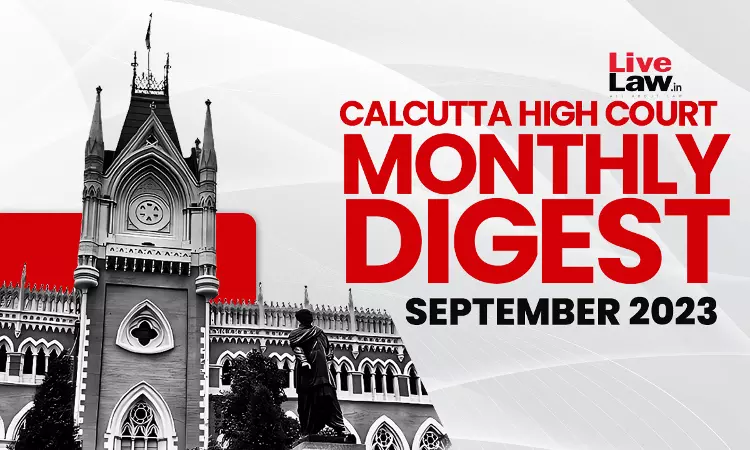- Home
- /
- High Courts
- /
- Calcutta High Court
- /
- Calcutta High Court Monthly Digest:...
Calcutta High Court Monthly Digest: September 2023
Srinjoy Das
4 Oct 2023 10:00 AM IST
Citations: 2023 LiveLaw (Cal) 259 To 2023 LiveLaw (Cal) 303NOMINAL INDEXSarat Chatterjee and Co. (VSP) Private Limited v Sri Munisubrata Agri International Limited (Formerly known as LMJ International Ltd.) and Anr. 2023 LiveLaw (Cal) 259Birendra Nath Mondal Vs State Of West Bengal And Ors 2023 LiveLaw (Cal) 260Zainul Haque v State of WB & Ors 2023 LiveLaw (Cal) 261Abhijit Das Vs. State...
Next Story



